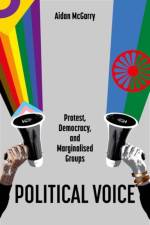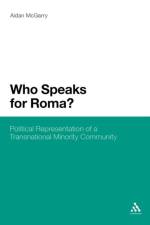- Protest, Democracy, and Marginalised Groups
av Aidan McGarry
341 - 1 061
The inclusion of marginalised groups is a problem of modern democratic societies as representative democracy is built on principles which favour the majority. Around the world, some sections of society are silenced and actively excluded--including women, migrants, refugees, LGBTIQ, indigenous communities, and ethnic minorities, among others. The voice of the majority is used to contain, diminish, and oppress minorities through institutional racism, violence, erasure from public life, socio-economic exclusion, and gender inequality. As marginalised people around the globe rise up to challenge political regimes, there is a pressing need to understand what political voice is, why is it vital to marginalised and excluded people, and examine its transformative potential. In Political Voice, Aidan McGarry examines the agency of marginalised people, emphasizing the processes and strategies through which different communities around the world articulate their political voices. McGarry develops an innovative concept of political voice around three elements: autonomy, representation, and constitution. This conceptualization is illustrated through contemporary case studies of two persecuted and silenced groups: LGBTIQ activists in India and Roma mobilization in Europe. The cases show how excluded people articulate their ideas, demands, hopes, and experiences, and what impact these interventions have on democratic institutions. By focusing on the political voices of marginalised groups, McGarry considers democratic expression beyond the ballot box, examining how the articulation of political voice constitutes marginalised groups and democracy itself.


